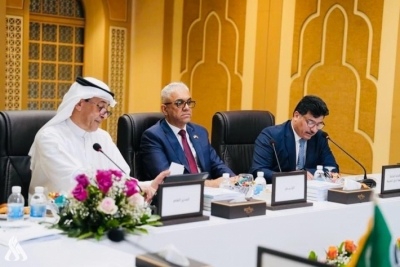
University Lecturer,
PhD , Business with Management from University of Plymouth.
The emergence of the Kurdistan Regional Government (KRG) in Iraq can be traced back to the aftermath of the 1991 Gulf War. Prominent Kurdish leaders, Jalal Talabani and MasoudBarzani, pledged an ambitious agenda, promising to establish the rule of law, develop infrastructure, and work towards the cherished goal of an independent Kurdistan.
However, the reality unfolded quite differently. Instead of fulfilling their commitments, the KRG leaders began by selling strategic assets like the Bekhma dam equipment to Iran. They also engaged in internal conflicts, such as a civil war against the PKK at the request of the Turkish government, and a prolonged conflict between the KDP and PUK factions from 1994 to 1998, which claimed countless lives and required U.S. intervention for resolution.
In the post-Saddam era starting in 2003, the Kurds became part of the Iraqi government, with the KRG officially recognized in the 2005 Iraqi constitution. Despite this, KRG leaders often prioritized their personal interests over their obligations to the federal government, effectively acting as if they were an independent state. Since 2009, the KRG began exporting oil without a formal agreement with the central government, diverting the revenue towards personal wealth accumulation rather than public welfare. The stark contrast between the living standards of the majority and the privileged families of Barzani and Talabani became painfully evident, causing widespread discontent among the population.
Despite boasting about their accomplishments, the KRG-Iraq administration earned a reputation as one of the most corrupt in the world. Shockingly, reports suggest the existence of 500,000 ghost employees in the KRG, as stated by an Iraqi MP[1]. Additionally, another Iraqi MP revealed that 57,000 individuals from Kurdish regions of Syria, Turkey, and Iran are listed as KRG government employees. Moreover, a U.S. official once claimed that Kurdish leaders hold a staggering $116 billion in overseas assets.
To protect their power and sustain their corruption, KRG leaders have repeatedly violated human rights, resorting to violence against unarmed protestors and imprisoning journalists using improper legal procedures. Numerous international human rights organizations have documented these abuses[2], including instances where KRI forces used lethal force against protestors demanding overdue salaries. One of the reports describes how KRI forces responded to protestors, in December 2020, demanding their basic rights stating “The security forces used live ammunition and tear gas canisters in their efforts to disperse the protesters, killing at least six protesters and wounding dozens, as well as severely beating a number of them.”
In 2015, internal divisions led to the suspension of the Kurdistan Regional Parliament, resulting in a political deadlock. This unfortunate incident highlighted that government institutions were only maintained if they served the interests of those in power.
In 2017, KDP made a fateful decision to hold a referendum for Kurdish independence, despite widespread warnings from both allies and adversaries, including U.S. Secretary of State Rex Tillerson. This ill-fated move cost the KRG control over 51% of Iraqi Kurdistan.
Subsequently, legal decisions against the KRG's energy sector and the right to export oil through Turkey left them with few bargaining chips in negotiations with Baghdad. They now rely on the central government to pay KRG employees' salaries.
Comparing the GDP growth of countries with effective leadership, such as the UAE and Malaysia, which saw their economies grow tenfold from 1990 to 2020, the KRG's leadership falls short. After 30 years of self-governance, the KRG finds itself in a situation where its economy, disputed territories, borders, and politics are largely under the control of the federal government, reflecting a disappointing setback. Thus, the Kurds are back to square one.
[2] UNAMI/OHCHR, ‘Human Rights and Freedom of Expression…’ (page 3, 9-10), December 2021
- USSD, ‘2022 Country Report on Human Rights Practices: Iraq’ (page 15), 20 March 2023
- GCHR, ‘Iraqi Kurdistan: Authorities use lethal force against peaceful protesters’ 10 Dec 2020
- https://www.amnesty.org/en/location/middle-east-and-north-africa/iraq/report-iraq/





